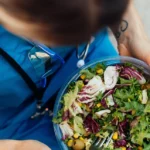
While BigBasket is still India’s largest online grocery store, it is facing competition from hyperlocal grocery delivery firms. Photo: Aniruddha Chowdhury/Mint
Online grocery store BigBasket doubled net sales and tripled its loss in the year ended 31 March 2015, according to documents available with the Registrar of Companies, as competition intensified in the Internet consumer market.
Net sales at BigBasket, owned by Supermarket Grocery Supplies Pvt. Ltd, increased to Rs.170.24 crore from Rs.69.72 crore the year before. It posted a loss of Rs.60.61 crore, compared with Rs.21.60 crore in the previous year.
Since its launch in October 2011, BigBasket has raised at least Rs.580 crore from a clutch of investors, including Helion Venture Partners, Bessemer Venture Partners, Ascent Capital and Sands Capital. Out of the total amount, about Rs.365 crore came in last year.
While BigBasket is still the largest online grocery store in the country, it is facing competition from so-called hyperlocal grocery delivery companies such as Grofers, PepperTap and ZopNow, among others.
These businesses are also fairly well-capitalized. Tiger Global Management and SoftBank Group-backed Grofers (Locodel Solutions Pvt. Ltd) has so far raised $165 million, while PepperTap (Nuvo Logistics Pvt. Ltd) has raised $51 million from online marketplace Snapdeal (Jasper Infotech Pvt. Ltd), SAIF Partners, Sequoia Capital and Russian venture capital firm ru-Net, among others.
ZopNow, which has raised $10 million, is backed by Dragoneer Investment Group, Accel Partners, Qualcomm Ventures and Times Internet Ltd.
BigBasket’s model is different from the hyperlocal delivery companies. BigBasket follows an inventory model where orders are delivered directly from its warehouse, while the likes of Grofers, PepperTap and ZopNow have tied up with local grocery stores and modern retailers to source supplies.
Co-founder and chief executive Hari Menon did not respond to an email seeking comment.
Among consumer Internet businesses, grocery delivery is particularly difficult as retailers operate on wafer-thin margins and pay less than 10% on every order to Grofers and PepperTap. From that commission, the start-ups, which hire hundreds of people to pick up products from stores and deliver them, need to pay for salaries, marketing spending and other costs.
Last month, Grofers shut operations in nine cities citing poor demand, while PepperTap has frozen expansion plans.
Among the larger e-commerce companies, Amazon and Flipkart are taking an active interest in grocery delivery because the category, despite low margins, ensures repeat purchase and hence, customer loyalty.
Amazon said on Wednesday that it had launched a grocery delivery app called Amazon Now. In September, Flipkart started testing a separate ordering app called Nearby in Bengaluru to deliver groceries, electronics, clothes and other products. But it has struggled to increase the number of orders.
Paytm, operated by One97 Communications Ltd, shut its grocery service in June, citing poor demand.
BigBasket is banking on private-label products to increase revenue and turn profitable. The company will tie up with about 1,800 grocery stores to sell its private-label products across categories such as vegetables, staples and bakery, Menon said in an interview on 9 June.
The company sells fruits, vegetables, meat and bread under the brand name Fresho and staples under the Popular and Royal brands through 250 neighbourhood stores, apart from its website and mobile app.
Private labels account for a third of the company’s revenues, Menon said in the interview.
According to industry experts, an inventory model, which leads to a bigger assortment of products, and private labels, will allow BigBasket to offer better prices to consumers, giving it an edge over rivals.
“In terms of sales, BigBasket should have grown three-four times this year (FY16). From the consumer point of view, whoever will have a wider assortment of products at a better price will have an edge,” said Harminder Sahni, founder and MD of Wazir Advisors, a retail consulting firm. “Others are merely doing delivery, which was anyway happening. But BigBasket can offer a better price as they have private labels.”
[“source-Livemint”]





